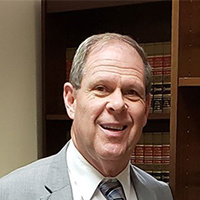Lynchburg Misdemeanor Lawyer, Virginia
Sponsored Law Firm
-
 x
x

Click For More Info:
-
Price Benowitz LLP
409 7Th St Nw Suite 200 Washington, DC 20004» view mapCriminal Law Working Relentlessly For You
Our firm was built on the understanding that comprehensive representation does not begin and end in the courtroom.
202-600-9400
Not enough matches for Lynchburg Misdemeanor lawyer.
Below are all Lynchburg Criminal lawyers.
Mark Joseph Peake
✓ VERIFIEDAccident & Injury, Criminal, Traffic, Lawsuit & Dispute, Personal Injury
Mark Peake has been practicing law in the areas of personal injury, insurance defense, civil litigation, products liability, and criminal defense sinc... (more)
Sidney H. Kirstein
✓ VERIFIEDAccident & Injury, Divorce & Family Law, Criminal, Real Estate, Business
I first fell in love with the idea of becoming an attorney while watching fictional defense attorney Perry Mason on TV. Played by Raymond Burr, that c... (more)
John Joshua Wheeler
Criminal, Wills & Probate, Property Damage, Defamation & Slander
Status: In Good Standing
Pamela Witt Willoughby
Divorce & Family Law, Criminal, Civil & Human Rights, Accident & Injury
Status: In Good Standing
 Seth Price Washington, DC
Seth Price Washington, DC AboutPrice Benowitz LLP
AboutPrice Benowitz LLP Practice AreasExpertise
Practice AreasExpertise


